Artificial Intelligence in E-Commerce
The e-commerce sector has gained significant growth momentum with the rapid increase in digitalization and internet usage. Changes in user behavior have led to a rapid increase in demand for online shopping, which has intensified competition among e-commerce sites. Increased competition has made it imperative for e-commerce sites to focus on providing superior user experiences, and it has become inevitable for them to make extensive use of artificial intelligence in this process.
Below is a chart from Statista that shows the growth of the e-commerce industry in terms of revenue. This graph shows that e-commerce revenue has been growing until today, and it is predicted that there will be approximately 10% growth every year until 2029. This clearly shows the cost of falling behind in e-commerce.
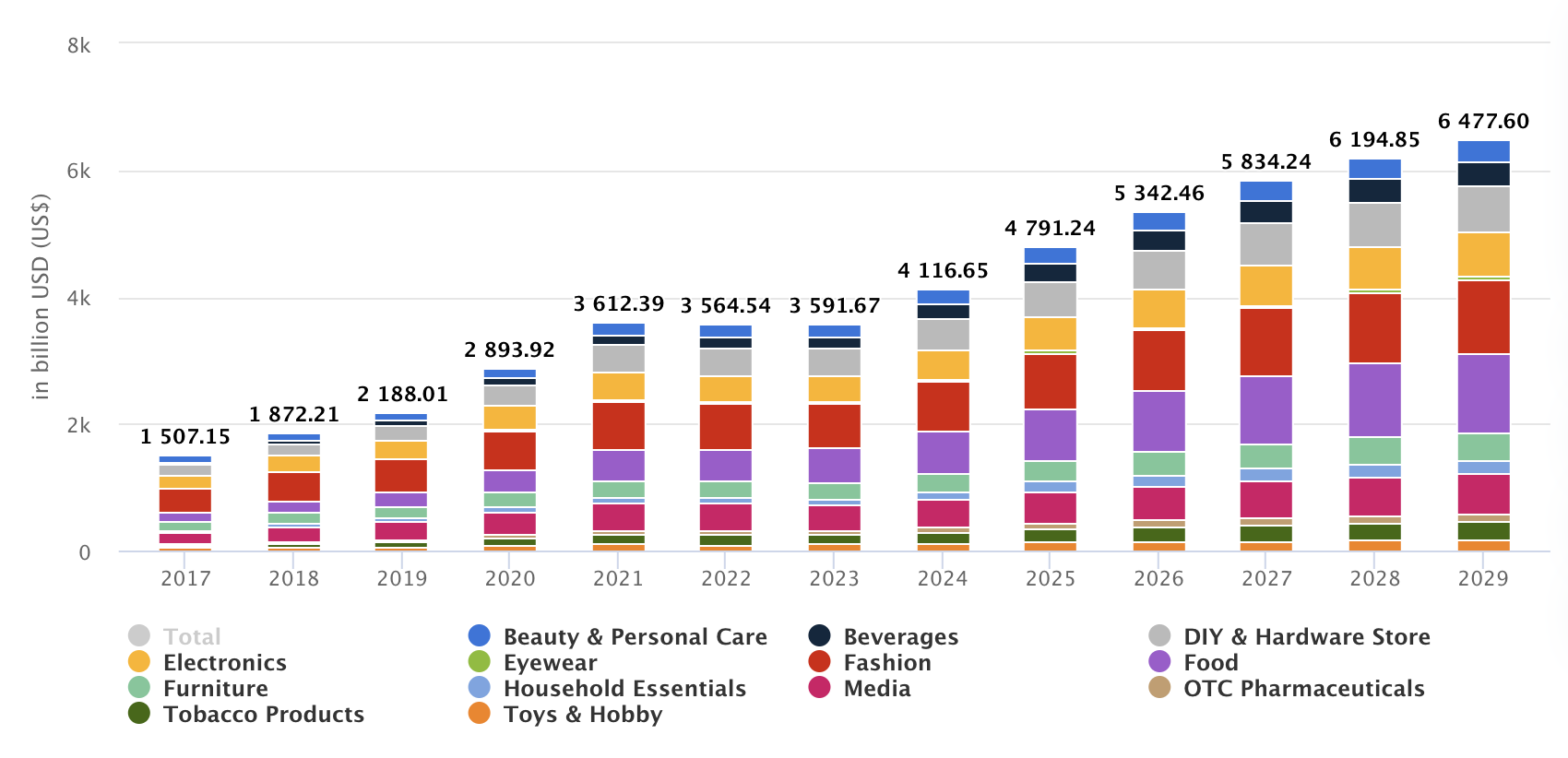
I will discuss artificial intelligence applications in the developing e-commerce sector in this article and provide examples.
What are the Benefits of Using AI in E-Commerce?
The use of artificial intelligence in e-commerce has many benefits for both businesses and customers. These include increasing conversion rates by targeting the right target audience with a personalized shopping experience, maximizing companies' profit margin with dynamic pricing and inventory management, and security measures such as fraud detection. In short, using artificial intelligence has many benefits in terms of conversion rate, customer loyalty, and user experience. Therefore, as I mentioned above, the use of artificial intelligence is critical for the e-commerce sector to gain a competitive advantage. Research shows that 87% of businesses believe that the use of artificial intelligence provides a competitive advantage.

Popular AI Applications & Examples
Content Creation
One of the main examples of the use of artificial intelligence in the e-commerce sector is undoubtedly content generation. You can create any kind of content you need on your website such as blog content, category page content, and product detail page content with many artificial intelligence models, especially chatGPT. By producing faster and higher quality content, you can keep your website up-to-date and gain a competitive advantage. In addition, by increasing the number of useful content for your customers, you can rank for more keywords and support your organic traffic.
Here are a few examples of using AI in content writing.
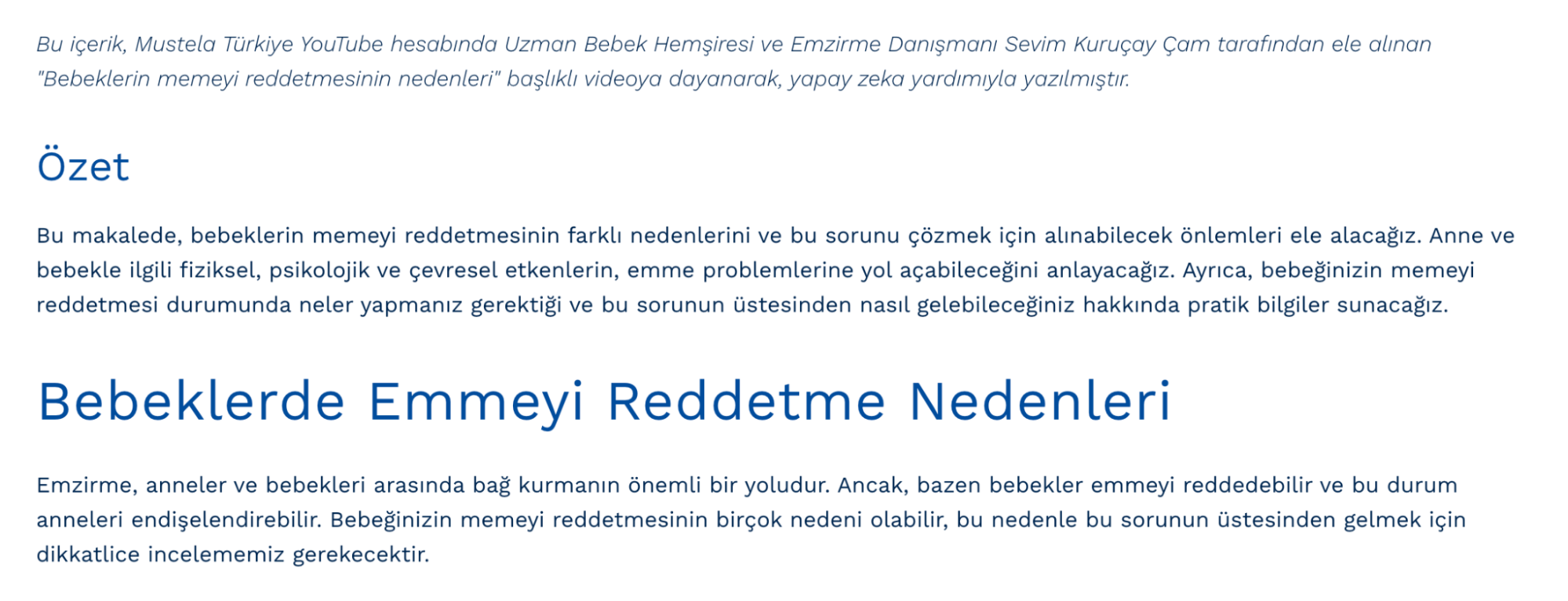
Related URL: https://www.mustela.com.tr/blogs/hamilelik/bebeklerde-emmeyi-reddetme-ve-nedenleri
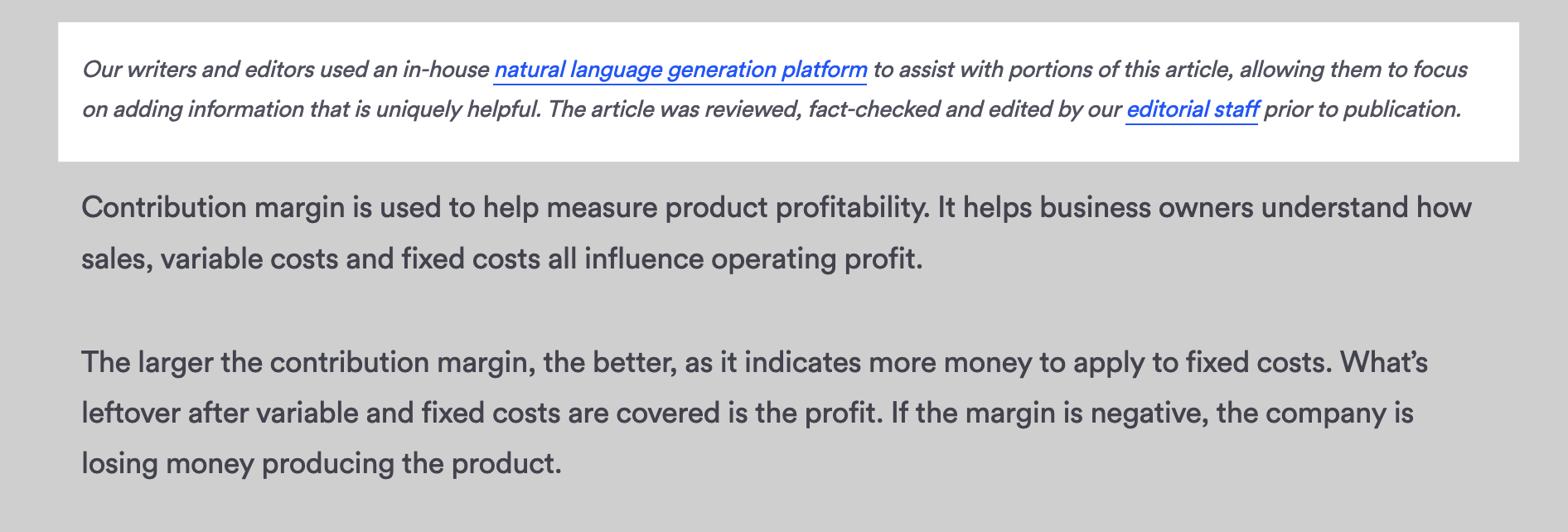
Related URL: https://www.bankrate.com/investing/contribution-margin/
Content Summarization
You may ask what this article has to do with the e-commerce sector. However, as you know, many e-commerce sites include blog pages under the same domain. Therefore, you can summarize the content that you think will be useful for your users, such as blogs or guides, in a few lines with the help of artificial intelligence and increase the user experience by presenting this summary information in a section of the page.
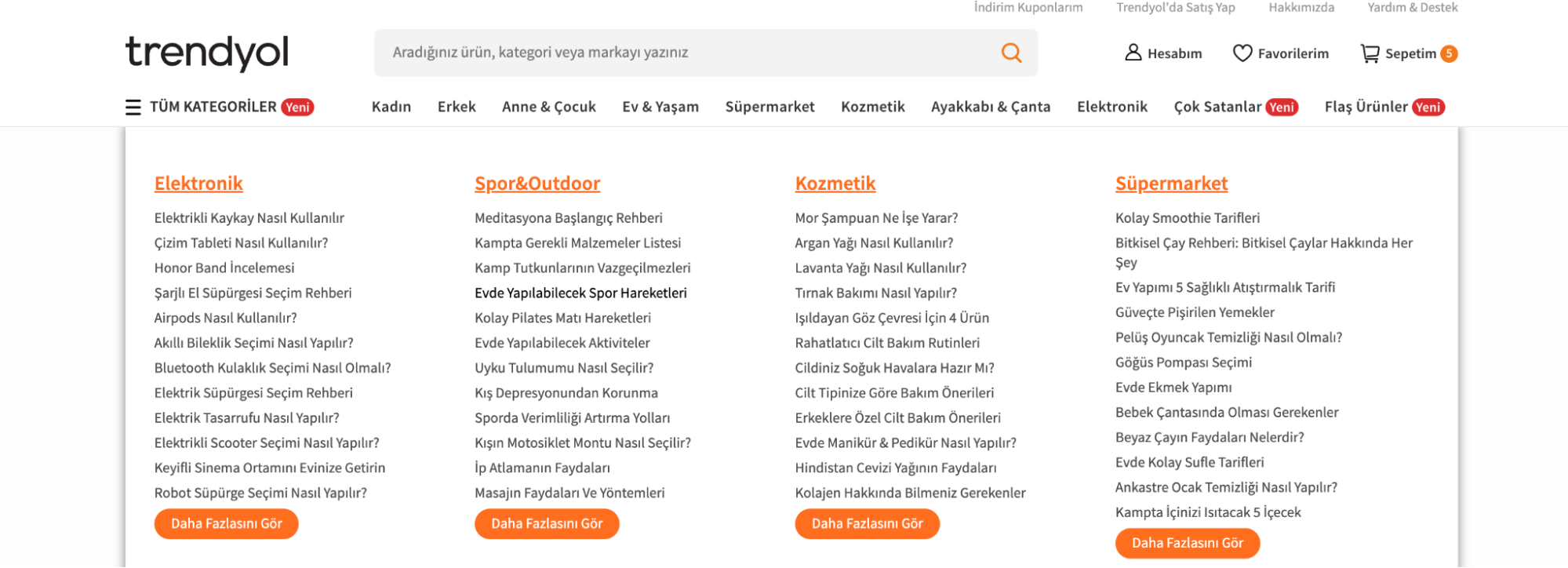
Comment Summarization
With the support of artificial intelligence, you can summarize the reviews for your products on your e-commerce site and provide short and clear information about the product to the user.
Amazon offers a better experience by summarizing customer reviews. The best results may not always be achieved in this application. Therefore, it is worth noting that the content is created by artificial intelligence, as in the case of Amazon.
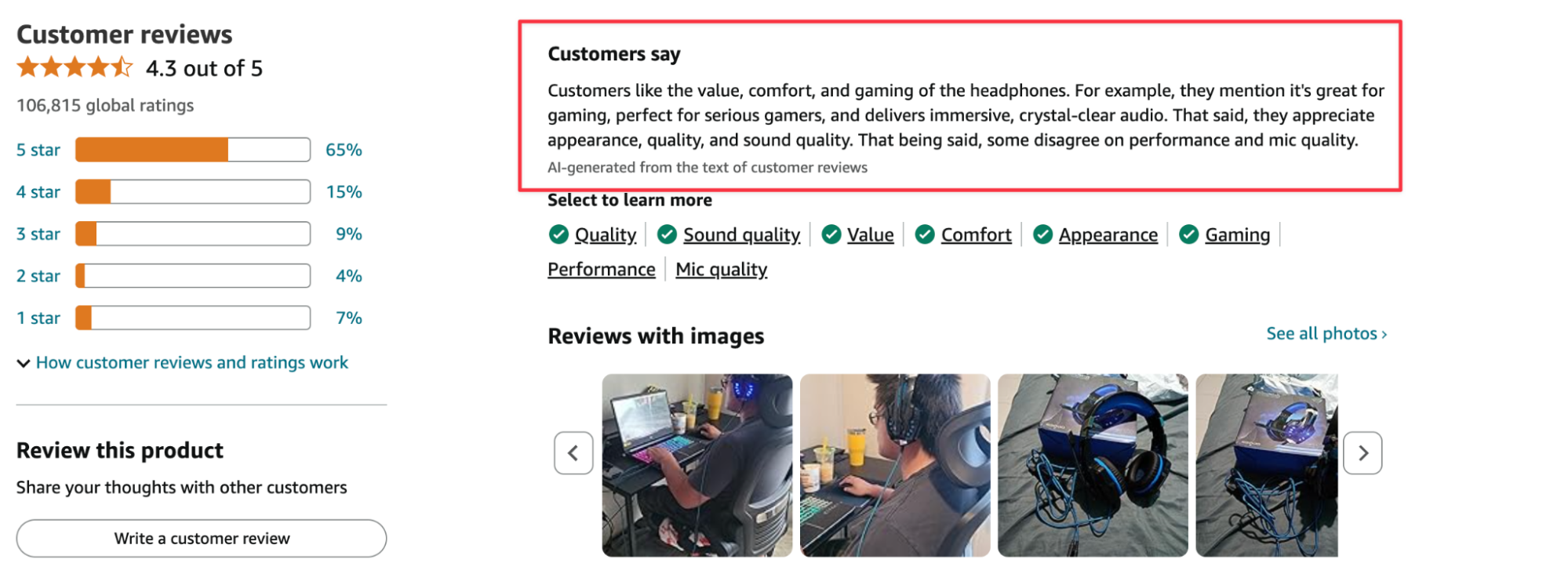
Chatbot
Chatbots and assistants have been used in the e-commerce sector for a long time. Chatbot support is critical for e-commerce sites in order to follow customer demands, provide information, and intervene in technical problems such as payment problems. Artificial intelligence-supported chatbots can be used to manage the problem traffic that may occur here in the fastest way.
Zalando is one of the e-commerce sites that offer AI-powered chatbot services. In addition to answering customer questions, Zalando's chatbot algorithm offers additional possibilities such as fashion advice.
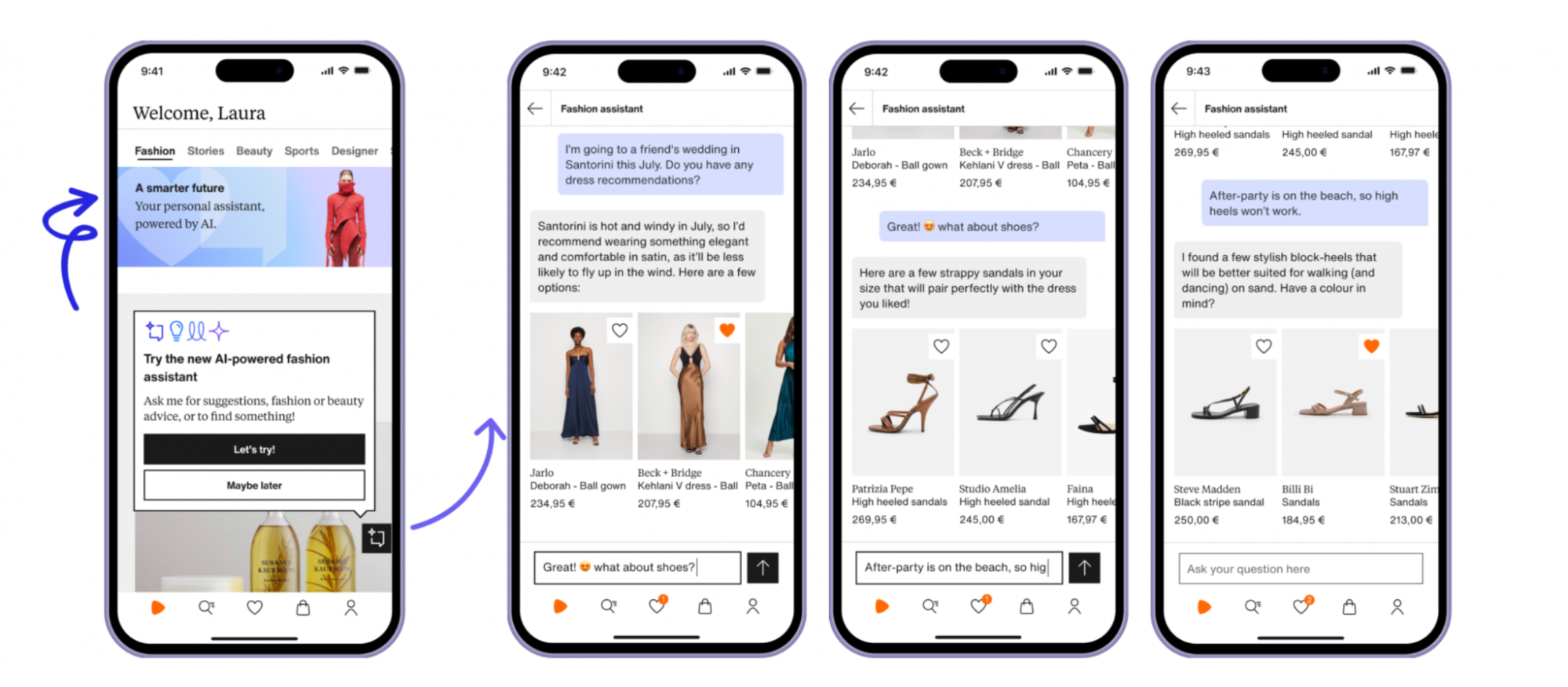
Frequently Asked Questions
The frequently asked questions area on web pages is of great benefit to users as it is generally highly readable and provides pinpoint answers. You can use artificial intelligence to identify and answer frequently asked questions about your web page. You can find questions and answers that can be useful directly in the content you write, and provide summary information to your users in FAQ format.
I asked ChatGPT to create and answer 3 questions for https://www.sigortam.net/kasko-sigortasi-nedir-ne-ise-yarar page by the content. The answer seems sufficient and satisfactory.
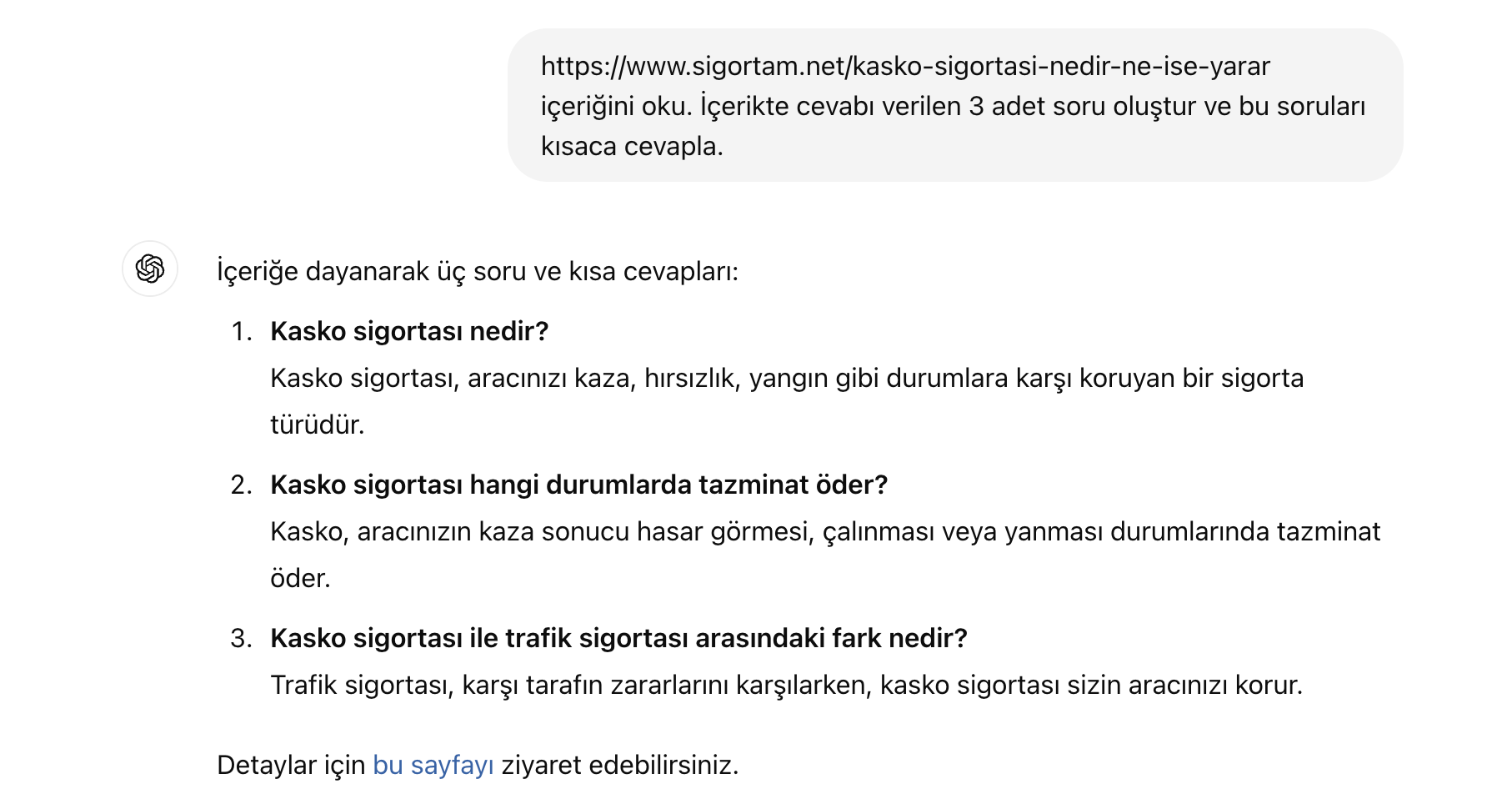
Personalized Product Recommendations
Personalized product recommendations are one of the most widely used artificial intelligence-supported efforts on e-commerce sites. By analyzing the products users have browsed in the past and their interests, you can offer products similar to these products to users and increase the conversion rate.
Trendyol supports sales and conversion rates by listing the products you have visited in the past and products similar to these products under “special products for you”.
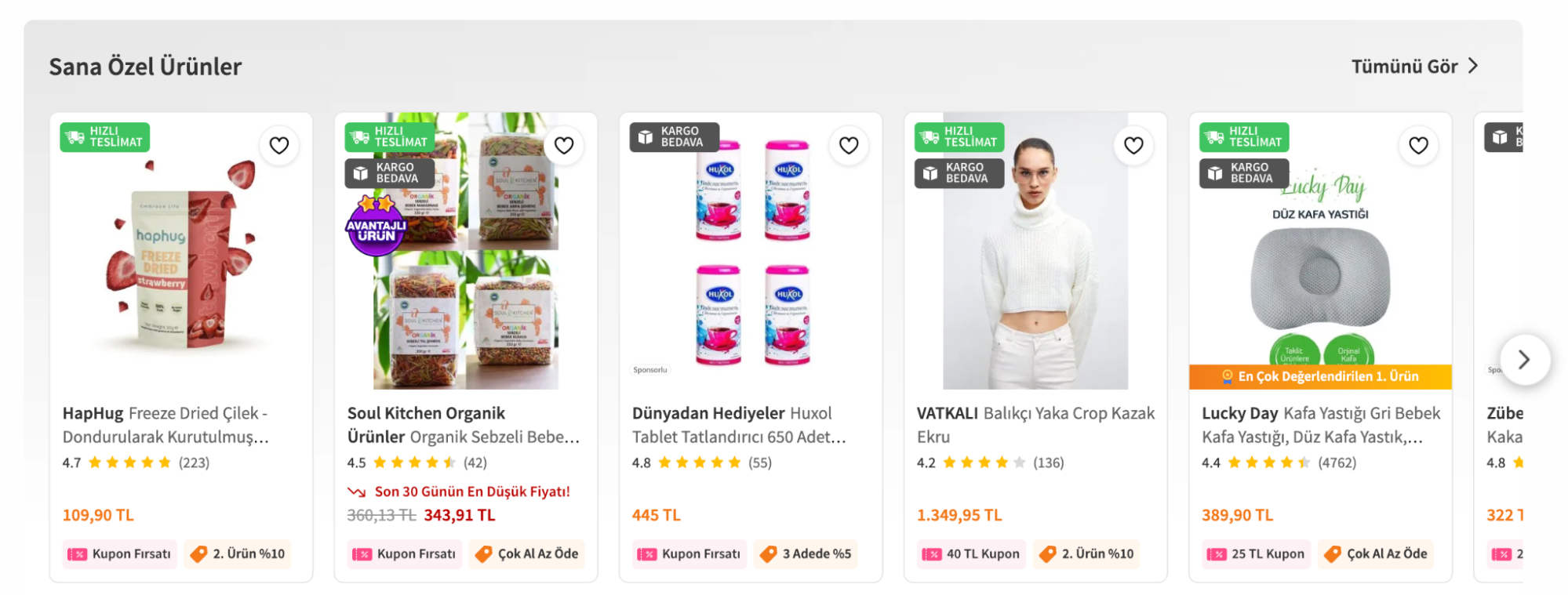
On Page Optimizations
You can quickly optimize on page elements such as titles, descriptions, and headings on e-commerce sites with artificial intelligence support. You can create SEO-compliant on page elements with commands such as using CTA, comply with the character limit, and easily build the heading hierarchy.
Similarly, you can use artificial intelligence tools to optimize on page elements for multilingual sites.
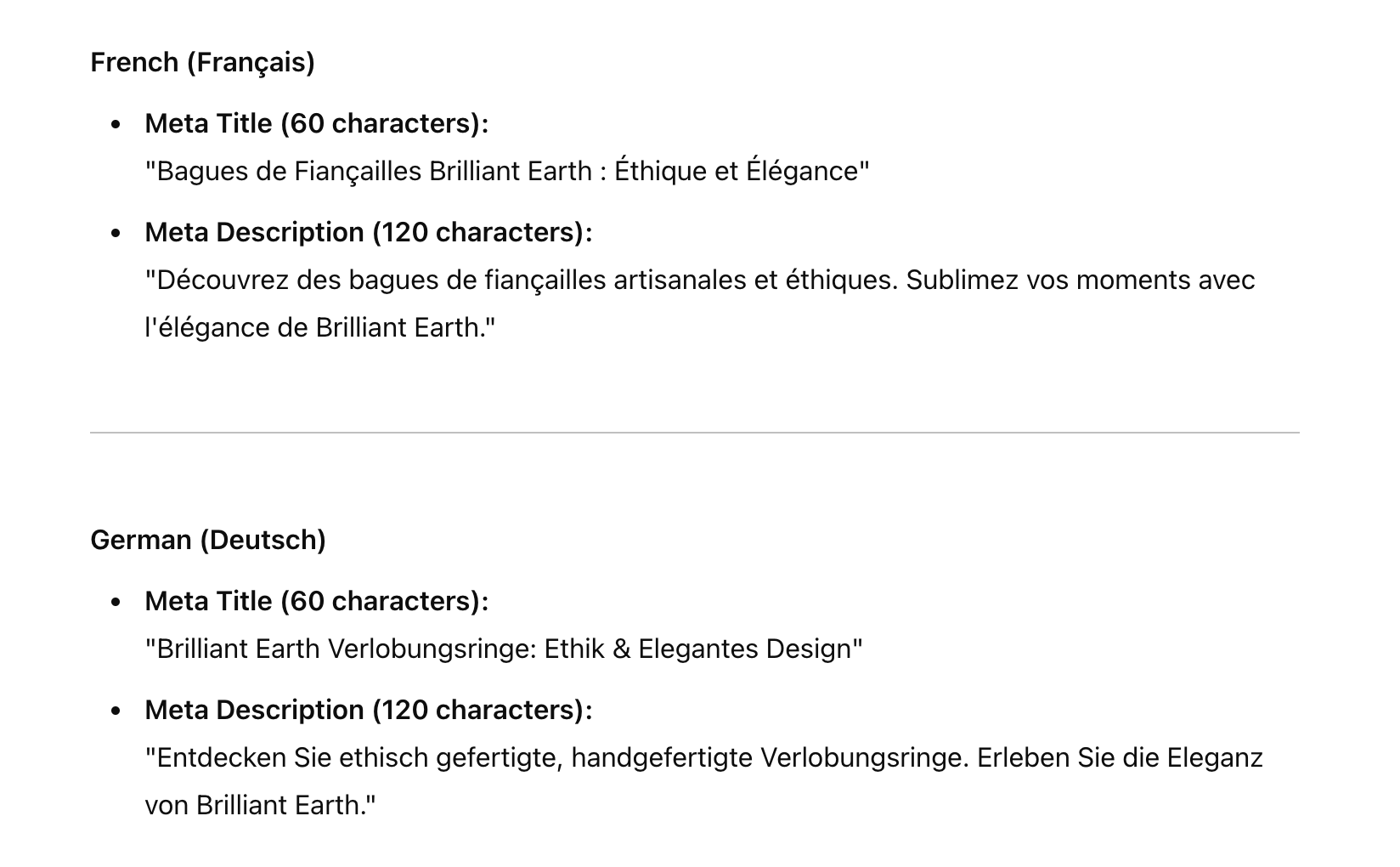
Image Searches
Image recognition technology offers significant value in e-commerce by personalizing and accelerating users' shopping experience. With this technology, users can easily find and purchase the same or similar products by uploading a photo of a product. It increases customer satisfaction by suggesting similar products, especially in areas such as fashion and home decoration where visuality is at the forefront. In addition, image recognition can offer alternatives to out-of-stock products and increase the purchase rate of customers. This both improves the user experience and increases sales for businesses, giving e-commerce platforms a competitive advantage.

Spam & Fake Comment Detection
NLP algorithms can identify fake comments by analyzing the structure of language, words used, sentence lengths, and emotional intonation. If you have a website with a large number of comments, it will not be easy to deal with them. With artificial intelligence support, you can analyze thousands of comments in a short time, and you can quickly clean up comments by taking into account many data such as IP address, comment frequency, and user information. In this way, you can also protect your website from spam attacks.
Conclusion
Artificial intelligence applications in the e-commerce sector provide benefits in many areas from user experience to operational efficiency. It also helps e-commerce sites stand out from the competition by enabling automation in processes such as content production and SEO. By closely following the innovations brought by artificial intelligence, you can direct the sector and support your sales.



















